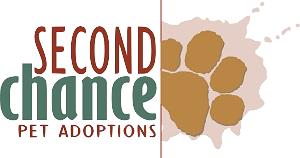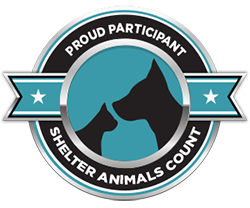In order to reduce contact and promote safety for all during the COVID-19 pandemic, Second Chance Pet Adoptions is closed to the public for general animal visitation until further notice. We will continue to monitor and evaluate how best to respond to this issue. Our goal is to protect our community of people and pets from unnecessary exposure and to contribute to our region’s efforts to slow transmission by reducing contact.
As always, our priority is towards the safety of our animals. Thus, while volunteer shifts and management of the animals have been altered slightly, please rest assured that the animals in our program have continued to receive excellent care, with no disruption to their routines.
Second Chance is setting appointments for those with approved adoption applications. In order to set an appointment to meet a potential new family member, make sure to fill out an adoption application.
Second Chance is still accepting donations during this time (Monday – Friday, 11am – 5pm). The door is locked, but you are welcome to drop items off for contact-less delivery. If you need a tax receipt, please contact us and we will email or mail one to you. If you need assistance with getting the item(s) out of your car, we are happy to help; please just contact us in advance so we can arrange a time to be on the look-out for you. We appreciate you keeping our animals in mind!
MARCH 2021 UPDATE:
COVID-19 TIPS FOR YOU AND YOUR PETS:
If you have, or believe you might have, COVID-19, you should avoid contact with other people as well as your pets as much as possible in an abundance of caution.
Having a plan in place for pets is critical during the uncertainty of COVID-19. Individuals who become sick or require hospitalization will need to have someone to take their animals. We encourage you to plan ahead for the safety of your pets.
- People should identify a family member or friend who can care for pets if someone in the household becomes ill.
- Have crates, food, and extra supplies on hand for quick movement of pets.
- Keep all animal vaccines up to date in the event that boarding your pet becomes necessary.
- Ensure all medications are documented with dosages and administering directions. Including the prescription from your veterinarian is also helpful.
- Pets should have identification: collar with ID tag and microchip (microchipping is the best practice).
This is a difficult time for everyone, and we will continue to update with any important changes as they occur. Stay safe, kind, and informed.
RESOURCES:
Pets and COVID-19: Information for Pet Parents



